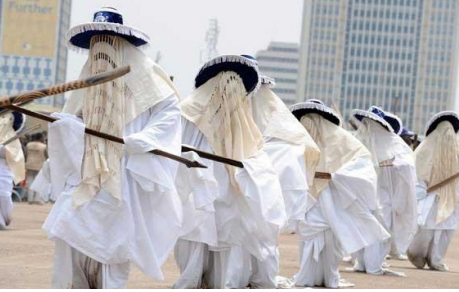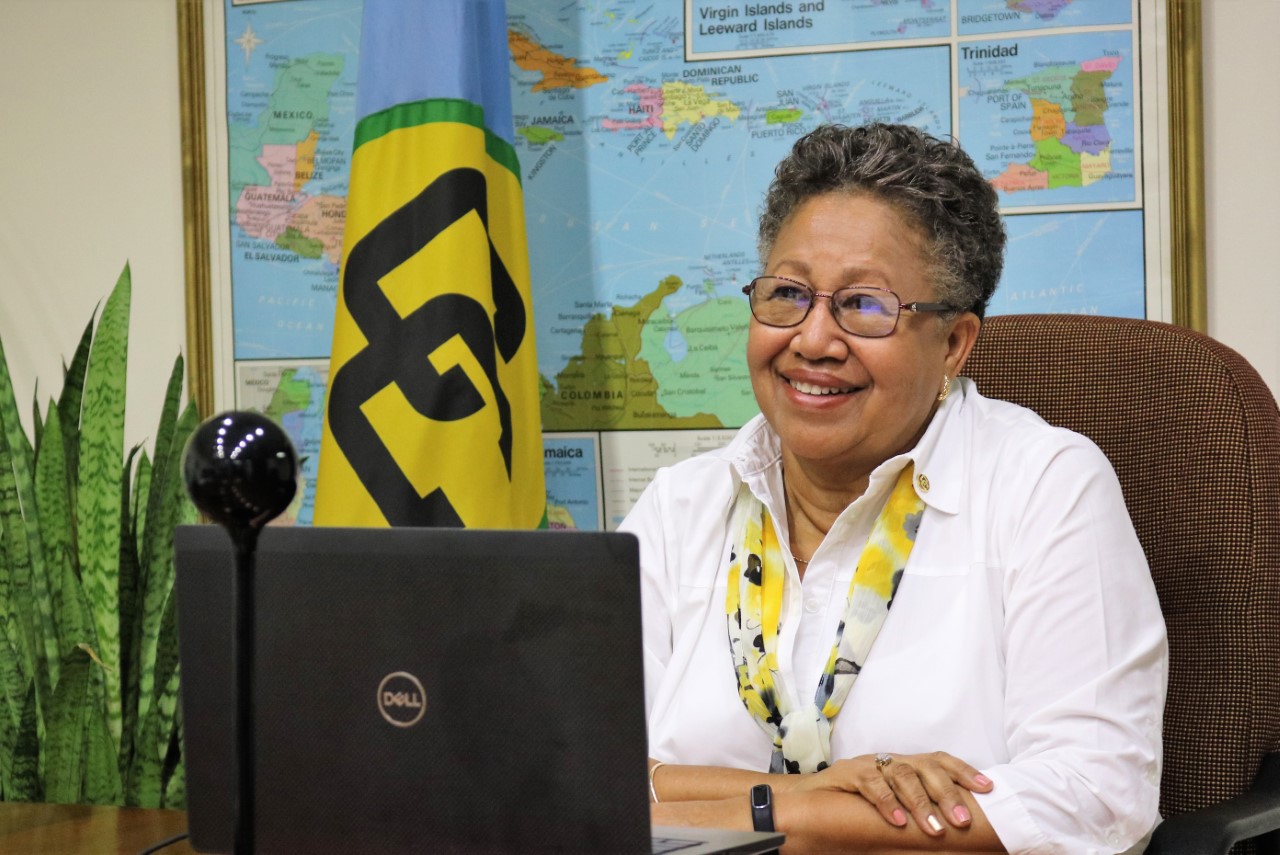Environment
Unveiling The Mystique Of Eyo Festival

In the heart of Lagos, Nigeria, a centuries-old tradition comes alive with the Eyo Festival, a captivating spectacle that showcases the rich cultural heritage of the Yoruba people. Also known as the Adamu Orisha Play, this unique festival has its roots in Iperu-Remo, a town in Ogun State, and has evolved into a tourist attraction that draws visitors from around the world.
The Eyo Festival has a strong historical footing, dating back to the days of secret societies in Lagos. Originally performed to escort the soul of a departed Lagos King or Chief and to usher in a new king, the festival has evolved to commemorate the life of a notable person or to celebrate a special occasion. The first procession in Lagos was held on February 20, 1854, to commemorate the life of Oba Akintoye.
On Eyo Day, the streets of Lagos Island come alive with a colorful procession of white-clad Eyo masquerades, representing the spirits of the dead. The procession, which takes place from Idumota to the Iga Idunganran palace, is a sight to behold, with the masquerades, known as “agogoro Eyo” (tall Eyo), paying homage to the reigning Oba of Lagos. The festival takes place whenever occasion and tradition demand, though it is usually held as part of the final burial rites of a highly regarded chief in the king’s court.
The Eyo Festival is a celebration of tradition, with each of the five Eyo groups – Adimu, Laba, Oniko, Ologede, and Agere – taking turns to showcase their unique costumes and performances. The festival is a time for the Yoruba people to come together and celebrate their heritage, with the traditional monarchs and nobles exercising their residual power. The participants all pay homage to the reigning Oba of Lagos, showcasing the rich cultural traditions of the Nigerian people.
The word “Eyo” also refers to the costumed dancers, known as the masquerades, that come out during the festival. The Eyo masquerades are a symbol of the spirits of the dead, and are referred to in Yoruba as “agogoro Eyo” (literally: “tall Eyo”). The Eyo festival is a homage to the death of a king, and the ritual is also organized to commemorate the election of a new leader.
A full week before the festival (always a Sunday), the ‘senior’ eyo group, the Adimu (identified by a black, broad-rimmed hat), goes public with a staff. When this happens, it means the event will take place on the following Saturday. Each of the four other Eyo groups — Laba (Red), Oniko (yellow), Ologede (Green), and Agere (Purple) — take their turns in that order from Monday to Thursday.
To maintain the sanctity of the festival, certain items are prohibited, including Okada, taxis, bicycles, sandals, and smoking. The masquerades are known to enforce these rules, beating anyone found using prohibited items with their staffs. Female participants are also prohibited from wearing head ties or headgear, while male participants are prohibited from wearing caps of any kind.
Today, the Eyo Festival has become a major tourist attraction, generating revenue for government and small businesses around the Lagos Island venue. Visitors from around the world flock to experience the vibrant culture and traditions of the Yoruba people, making it an important contributor to the local economy.
The Eyo Festival is a timeless celebration of Yoruba heritage, a testament to the rich cultural traditions of the Nigerian people. As the festival continues to evolve, it remains an important part of Yoruba identity, a symbol of their history, culture, and traditions. Whether you’re a local or a visitor, the Eyo Festival is an experience not to be missed, a chance to connect with the vibrant culture and traditions of the Yoruba people
Environment
Hurricane Melissa: CARICOM Reaffirms Support for Jamaica, Haiti

Hurricane Melissa: CARICOM Reaffirms Support for Jamaica, Haiti
CARICOM Secretary-General, Dr Carla Barnett, has restated the Community’s solidarity with Jamaica and Haiti following the devastation caused by Hurricane Melissa, saying the disaster reinforces the urgent need to strengthen regional resilience against climate change.
Dr Barnett made the remarks at the opening of the 61st Regular Meeting of the Council for Trade and Economic Development (COTED), where she also highlighted the importance of the CARICOM Single Market and Economy (CSME) in supporting sustainable growth amid recurring climate shocks.
She expressed sympathy to the Governments and people of Jamaica and Haiti over the loss of lives and widespread damage caused by the storm.
She commended the response of regional bodies, including the Caribbean Disaster Emergency Management Agency (CDEMA), the Caribbean Public Health Agency (CARPHA), private sector groups and other regional partners.
The Secretary-General also referenced the recent visit of four CARICOM Heads of Government to Jamaica as a strong demonstration of regional unity and a signal of continued support.
“The experience leaves us in no doubt about the urgency of addressing the existential threats posed by climate change and the need to redouble our efforts to build resilience and foster sustainable development across our Region,” she said.
“Strengthening our trade and economic performance is a critical part of this, and COTED must continue to play its important role in this regard.”
Chairing the meeting, Belize’s Minister of State for Foreign Trade, Hon. Marconi Leal, noted that the Region was dealing with complex global and domestic challenges that continue to test the resilience of individual Member States.
He said Hurricane Melissa further exposed the Caribbean’s vulnerability to climate threats, stressing the need for deeper cooperation and coordinated recovery efforts.
Minister Leal said COTED would deliberate on critical issues, including advancing the free movement of CARICOM nationals, implementing the Community’s Industrial Policy and Strategy 2035, and support measures under Article 164 of the Revised Treaty of Chaguaramas.
The 61st Regular Meeting of COTED reaffirmed CARICOM’s commitment to strengthening regional trade, deepening economic integration and advancing sustainable development across the Community.
Environment
Spain Introduces Disaster Preparedness Lessons for Children

Spain Introduces Disaster Preparedness Lessons for Children
In a bold move to strengthen climate resilience, Spain has announced compulsory disaster preparedness lessons for schoolchildren across the country.
The initiative, unveiled on Thursday by the Spanish government, is designed to equip children with knowledge and survival skills in the face of floods, wildfires, earthquakes and volcanic eruptions, which experts say are becoming more frequent due to the worsening climate emergency.
The development comes after a summer of devastating forest fires claimed four lives, and less than a year after catastrophic floods left more than 220 people dead in eastern Spain.
According to the Ministry of Education, the new programme will cover not only natural disasters but also industrial, nuclear and chemical accidents, as well as emergencies involving the transportation of hazardous materials.
Over 8 million pupils in 25,000 schools will benefit from the compulsory training, which will begin this academic year.
Lessons will be delivered through videos, infographics and other teaching tools, with children in infant and primary schools receiving a minimum of two hours, while older students will undergo at least four hours.
“Infant school children aged three, four and five will learn to recognise alarms and spot early signs of danger, as well as basic safety principles,” the ministry said in a statement.
“Older children will be taught how to seek higher ground during floods and to take cover under desks during earthquakes.”
The ministry added that students would also be educated on identifying disinformation during emergencies, a growing concern in the digital age.
Speaking at the launch in Cuenca, Prime Minister Pedro Sánchez stressed the importance of preparing young people to face disasters worsened by climate change.
“If we don’t want to bequeath our children a Spain that’s grey from fire and flames, or a Spain that’s brown from floods, then we need a Spain that’s greener,” Sánchez declared on September 1, calling for a “great state pact” to tackle the climate crisis.
The lessons form part of a 10-point government plan to safeguard Spain, which experts say lies on the frontline of Europe’s climate challenges.
Environment
Pacific Island Nations Lead the Charge in Climate Action

Despite contributing a mere 0.03% to global greenhouse gas emissions, Pacific Small Island Developing States (PSIDS) are setting a powerful example in climate leadership.
A new report by the UN Climate Change Regional Collaboration Centre for Asia and the Pacific reveals that these nations are making significant strides in meeting the goals of the Paris Agreement.
The 14 PSIDS have demonstrated their commitment to reducing emissions and promoting sustainable development.
All 14 countries submitted their first round of Nationally Determined Contributions (NDCs) by the end of 2015, with 11 submitting updated or enhanced versions since then.
These NDCs outline ambitious targets in renewable energy, sustainable transport, and nature-based solutions.
Six PSIDS aim for 100% renewable energy, showcasing a commitment to reducing dependence on fossil fuels.
Countries are also exploring eco-friendly transportation options to minimize emissions and initiatives focus on preserving and restoring natural ecosystems to mitigate the effects of climate change.
The Pacific Island nations are reframing climate ambition as a regional issue, intersecting with identity, sovereignty, and development.
The 2050 Strategy for the Blue Pacific Continent highlights the importance of ocean-based solutions and regional collaboration.
Several countries in the region are taking bold steps to address climate change.
Fiji was the first country to ratify the Paris Agreement and preside over a UN Climate Conference (COP 23).
The Marshall Islands was an early submitter of Intended Nationally Determined Contributions (INDC) and has integrated youth participation and Indigenous knowledge into its national climate agenda.
Papua New Guinea was the first to formally submit an NDC, with a target of 100% renewable energy by 2030.
Vanuatu is committed to rapidly phasing out fossil fuels and transitioning to a circular economy, with NDC targets conditional on scaled-up international support.
As the global community prepares for the third round of NDCs, the Pacific Island nations offer a clear message: the next generation of NDCs must aim higher and go further, turning ambition into action and action into survival.
With climate change posing existential threats to these nations, their commitment to limiting warming to 1.5°C is not just about reducing emissions – it’s a matter of survival.
-
News1 week ago
Trump Warns Cuba to “Make a Deal” Or …
-

 Analysis3 days ago
Analysis3 days agoIn Honour of Our Fallen Heroes, by Alabidun Shuaib AbdulRahman
-

 Roots2 days ago
Roots2 days agoHow Aswan Connects Women, Film and the World
-

 Insights2 days ago
Insights2 days agoReframing Nigeria’s Banditry Crisis: From Emotional Narratives to Strategic Clarity
-

 Diplomacy2 days ago
Diplomacy2 days agoIran and the Limits of American Power









